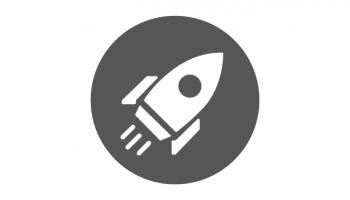Pilot Testing and Assessment of Safety and Integrity of Targeted Hydrogen Blending in Gas Infrastructure for Decarbonization
The purpose of this Agreement is to fund pilot testing and assessment of safety and integrity of targeted hydrogen blending in gas infrastructure for decarbonization.
The Regents of the University of California on behalf of the Los Angeles Campus
Recipient
Los Angeles, CA
Recipient Location
24th
Senate District
51st
Assembly District
$693,652
Amount Spent
Active
Project Status
$5,658,000
Award Amount
$1,592,021
Co-funded Amount
PIR-22-003
Agreement Number
-
Project Term
Los Angeles, CA
Livermore, CA
Irvine, CA
Site Location(s)
Copy Project Link
Follow Project
Project Update
The recipient held a virtual workshop with project partners on May 25, 2023, to discuss the boundaries and characteristics of use case systems, existing data, and knowledge gaps and to define the needed experimental data. The project team is also exploring host sites with primary considerations for the University of California, Irvine microgrid (Power Generation Application) and Graniterock (Industrial Application). Furthermore, the project team has developed a preliminary model of these systems for a "zero-order" safety, integrity, and reliability assessment based on available information on system design, energy delivery requirement, operational requirements, options for hydrogen injection and blending, existing gas asset condition, maintenance, and inspection.
The Issue
California gas IOUs are actively exploring hydrogen as a pathway to decarbonize the gas system. Blending pipeline gas with hydrogen is still in the early stages of development and use. Research is required to evaluate hydrogen compatibility with pipeline materials, ensure system safety and integrity, and quantify potential costs and benefits.
Project Innovation
This project will address knowledge gaps to quantify risk and performance impacts of blending hydrogen in the current California gas pipeline network. A multi-disciplinary team will conduct laboratory experiments, develop models derived from the experiments and broader knowledge, and validate the analyses through component and system-level testing. The project will also conduct technoeconomic analysis using the system level risk model to appropriately prioritize changes to the gas pipeline system to mitigate risk and inform the beneficial introduction of hydrogen into the gas network.
Project Goals
Project Benefits
This project will evaluate the potential impacts of hydrogen blends on gas system safety, reliability, performance, and environmental sustainability. Additionally, the project will analyze the technoeconomic feasibility of different pathways to transport hydrogen using the gas system to inform prudent investments going forward.

Safety
The project will conduct a laboratory experiment test program for materials and component-level reliability models and system-level risk and integrity assessments. The test program will investigate hydrogen impacts on the functional and safety performance of key components of the targeted gas system, and the results will form a basis for quantifiable evidence to support hydrogen blending up to 100 percent safely.

Reliability
Existing integrity and safety management practices may not be sufficient to ensure the safety, integrity, and reliability of the targeted gas system under hydrogen blends. Therefore, a systemwide quantitative risk analysis will be undertaken to identify needed modifications to the operation, inspection, and maintenance practices of the targeted gas system segments.

Environmental Sustainability
This project will assist in quantifying the potential environmental impacts and benefits of blending hydrogen into the gas system for targeted industrial and power generation end uses.

Affordability
The project will perform technoeconomic feasibility analyses of introducing hydrogen into the existing pipeline network at various levels and compare pathways including retrofitting existing gas pipelines, building new purpose-built hydrogen pipelines, and converting hydrogen to chemical carriers. This analysis will inform prudent investments going forward to ensure affordability as gas IOUs consider hydrogen blending.
Key Project Members

Ali Mosleh
Subrecipients

Institute of Gas Technology dba GTI Energy

Sacramento Municipal Utility District

Sandia National Laboratories

Solar Turbines Incorporated

University of California, Irvine

DNV GL USA, Inc.

MC Consult LLC

System Safety LLC

Match Partners

Sacramento Municipal Utility District

Solar Turbines Incorporated

The Regents of the University of California on behalf of the Los Angeles Campus

Utilization Technology Development

DNV GL USA, Inc.

MC Consult LLC

Capstone Green Energy




